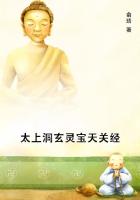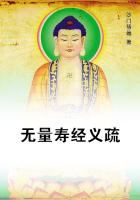An ardent desire for a more equal division of the produce of labour inflames the labouring classes, and passes from land toland. In England it arouses agitation among the industrial classes, and is beginning to invade the rural districts. It obviouslymenaces landed property, as constituted in this country. The labourers, who till the soil, will claim their share in it; and ifthey fail to obtain it here, will cross the sea in search of it. To retain a hold on them they must be given a vote; and there isfresh danger in increasing the number of electors while that of proprietors diminishes, and maintaining laws which renderinequality greater and more striking, while ideas of equality are assuming more formidable sway. To make the possession ofthe soil a closed monopoly, and to augment the political powers of the class who are rigidly excluded, is at once to provokelevelling measures and to facilitate them. Accordingly we find that England is the country where the scheme of thenationalization of land finds most adherents, and is most widely proclaimed. The country, which is furthest from theprimitive organization of property, is likewise the one where the social order seems most menaced.
The history of property in China and at Rome is very similar to that which we have just sketched for England. The oldestChinese chronicles represent that country as having already arrived at the agricultural stage; but private property was not yetapplied to the soil. The land was divided among all those who were capable of cultivating it, that is, among the inhabitantsbetween twenty and sixty years of age. Each valley had an independent administration, and elected its own chiefs; thesovereign being also elective. These officers had certain lands assigned to them, the produce of which enabled them to liveaccording to their dignity. This is exactly the same system as we have seen in Germany. From the year 2205 B. C. the empirebecame hereditary. (25) The provincial chief also usurped a hereditary right of succession. The sovereigns made grants of landreserving certain rents, and the lords in turn did `the same. A kind of feudalism was thus established; the property cultivatedby the peasants, however, continued to be divided among the families proportionally to the number of hands which eachcould command. In the partition, the distance of the lands was taken into account, and a smaller portion given in those whichwere nearer at hand. One lot in nine had to be cultivated for the benefit of the State by the families who obtained theremaining eight. The system of common lands, gun-tjan , was maintained until about the third dynasty, 254 B.C., and lastedto our own times in the remote districts of Corea. Private property was introduced by the house of Zin: but gradually, as thechronicles tell us, the rich usurped all the lands, and then let them to the ejected cultivators, reserving half the produce as arent. The government has since, at different times, had recourse to agrarian laws to augment the number of proprietors. Themost remarkable and most general of these laws is that promulgated by the Tan dynasty (619907). Every individual,provided that he had a separate house, received a portion of land in perpetuity; and a second piece temporarily, conditionallyon his being in a position to cultivate it. The portion assigned to the different classes varied according to their rank anddignity. The private property was inalienable, except in extreme cases. Life estates returned to the State, to be re-distributed.
This system did not long remain in force; about the year 1000 it gave way to absolute private property, which,notwithstanding the Mantchou conquest and revolutions, has survived to the present day.
Landed property, therefore, in the evolution of centuries, has passed through similar phases there to those which it hastraversed in the West.
1. Document of the year 858. Kemble, Cod. Dipl . 1, 104. Ego rex cum consensu ac licentia meorum optimatum .
2. The dwelling-house itself bore the name of town, from being surrounded by a hedge. In cyninges tune,on eorles tune ("In the house of the king," or "of the earl").Laws of Alfred, I. ?2 and ?13. The farmyard also bore the name "town." Seethe excellent work of E. Nasse, Ueber die mittelalterliche Feidgemeinschaft in England .
3. The laws of king Ina rendered any one, who was careless in constructing his share of the fence, responsible for anydamage caused by cattle. The old Jute law of the year 1240, III. c. 57, Van thünen the makende (of the construction offences) explains in detail the obligations of the villagers as regards the keeping up of fences surrounding the houses or thevillage. See, as regards Germany, Von Maurer, Geschichte der Frohnhöfe , III. p. 195.
4. In Domesday Book there is frequent mention of forests set aside to supply the necessary wood for these enclosures. Silva,nemus ad clausuram, ad sepes,ad sepes reficiendas,rispalia ad sepes .See General Introduction to DomesdayBook , by Sir H. Ellis, 1833, Vol. I. p. 100, quoted by Nasse.
5. See Kemble, Cod. Diplom ., Nos. 179190, 241, 805, 432, 843, 1142, 1281.
6. Village Communities (1878}, p. 88.
7. This is precisely the condition of the German serf as described by Tacitus: " Ceteris servis, non in nostrum morem,descriptis per familiam ministeriis, utuntur: suam quisque sedem, suos penates regit. Frumenti modum dominus, autpecoris aut vestis, ut colono injunqit, et servus hactenus paret: cetera domus officia uxor ac liberi exsequuntur ."8. See M. Nasse's instructive article in the Contemporary Review , May, 1872, Village Communities .
9. Land Systems in Ireland, England and Continental Countries . London, 1871.
10. Landlordism , by David Syme. London, Trübner, 1871.
11. See Nasse, Ueber die mittelalterliche Feldgemeinachaft ..
12. For all this, see the work, of Nasse, already quoted.














